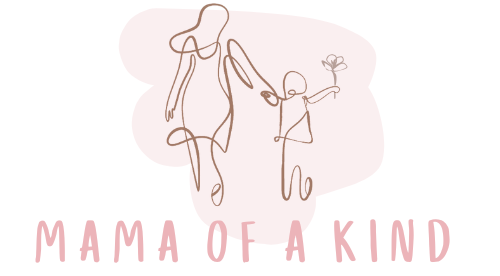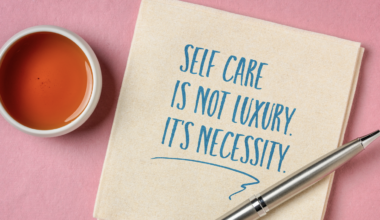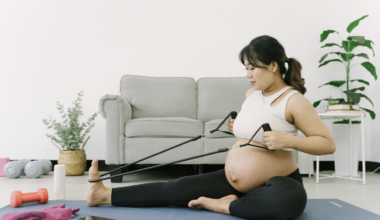Table of Contents
- A Different Era of Sleep Dynamics for Parents & Infants:
- How Did it Start? The Evolution of Sleep Training:
- What is Sleep Training & What Are Some of the Methods?
- Why is Sleep Training So Much More Popular Now?
- Sleep Consultants’ Presence & Qualifications:
- Infant Sleep Consulting, a Lucrative Business
- The Fear & Guilt-Mongering
- The Guilt Trip Needs to Stop
- The Bottom Line
- How to Navigate All of This?
A Different Era of Sleep Dynamics for Parents & Infants:
Decades ago, families were a lot larger. Usually parents had a lot of support in taking care of their little children. Nowadays, parents are much more on their own with minimal support and are sleep-deprived and exhausted.
Mood swings, low energy, anxiety, stress and difficulty parenting in general, are all examples of how extreme sleep-deprivation can affect modern parents. This is why “sleep training” is becoming much more prevalent in our era, as parents are in desperate need of some rest in order to parent better.
The sleep training industry is becoming lucrative due to this increased demand for help. However, many of the sleep training industry’s services are being marketed in absolutes; that your child MUST be sleeping through the night, alone; and that sleep consultants are there to help you achieve that.
But what’s being disregarded is the fact that frequent night wakings are actually normal infant behaviors.7
Many parents are left in fear or guilt with the sleep training industry’s portrayal of what normal infant sleep is. Parents are led to believe that something’s wrong with their child or with their ways and that they might be creating bad sleeping habits for their child.
As you can see, there’s a lot of unlearning to be done about some myths that are tied to infant sleep.
How Did it Start? The Evolution of Sleep Training:
- 1907: Dr. Luther Emmett Holt, a paediatrician who wrote “The Care and Feeding of Children” in which he introduced the notion of “cry it out” where a baby is left in the room for the night until the next morning and left to “cry it out”.1
- 1985: Dr. Richard Ferber, a doctor and researcher, came up with a more progressive extension of the cry-it-out method; a more “gentle” approach where the parent would respond to their baby’s cries after a set amount of time.2
- 1980s-now: many other methods have been introduced since then, which are discussed in further detail below.
What is Sleep Training & What Are Some of the Methods?

Sleep training is a broad term used for a system in which a baby or child is “taught” or “shown” how to sleep more than several hours on their own, and if they wake during the night, they would be able to soothe themselves back to sleep.3
There are newer, more gentle methods that have emerged. Of course, they all mostly involve some amount of crying, but some are more controlled and even include a level of supervision on the parent’s behalf.
To name a few, here are some of the most well-known methods.4
- Cry-it-out (CIO) method: as described in the beginning of this article, this is a method in which parents settle their baby down for the night in their crib and leave the room until the next morning. In this method, should the infant cry in the middle of the night, parents shall abstain themselves from going into the room and wait until the infant basically cries themselves back to sleep or is able to soothe themselves back asleep. This is a super controversial method where many parents worry about the stress it can cause to their infant, needless to say, the stress it can cause the parents as well.
- Ferber method: this is a more gradual approach to the CIO method, where the caregiver will initially respond to their child’s cries, but gradually increase the time at which they intervene for every subsequent crying bouts.
- The Check & Console method: this is an extension of the Ferber method where a caregiver will check in on their child before they even start crying. Gradually, they keep increasing the time at which they enter their child’s room to check and console them.
- The Fading method: the approach is that a caregiver stays in the child’s room until they fall asleep. This is also known as the “camping out” method and is practiced from a distance, either standing up or on a chair. Every subsequent time, the distance is increased, until the caregiver is no longer present in the room. The idea is that if the infant fusses or cries, the caregiver is to not intervene physically; they should only provide reassuring sounds.
- The No Tears method: as you read it, this does not involve any crying out; it is known as the most gentle method. In this method, the caregiver provides a consistent bed time routine (eg: bath, feed, read a book, put sleep sack on, and lay them down in the crib). The idea is to put your baby down drowsy but awake so that they can “learn” how to fall asleep in their own comfort. With this method, caregivers sometimes mix the other approaches with this one.
It’s notable that the more gentle the approach, the more time-consuming it can be for parents or caregivers, and clearly…outright exhausting. Also, no single method can work for all infants; this is super important to remember. One method can be easy to put in place for one infant, and that same method might not work well for another infant or caregiver. So, don’t be too hard on yourself.
For example, I’ve personally tried the put my baby down “drowsy but awake”. I was being very consistent, but my child’s actual needs didn’t cooperate with the method. So…it didn’t work for us. There’s a lot of trial and error in this process and it can take a lot of time and LOTS of patience!
Why is Sleep Training So Much More Popular Now?
Probably most of you have seen sleep training consultations being advertised on your social media, or by word of mouth through friends or family who’ve used some of these sleep training methods. Decades ago, parents used to live with or live close to their extended family (aunts, uncles, parents, etc) and so taking care of children was much more of a shared charge. Nowadays, a lot of parents are on their own, with minimal support, so that charge can be heavy.

Sleep deprivation is REAL. Parents can become extremely exhausted, both on an emotional and a physical level. For one or two parents having to consistently wake up multiple times during the night to attend to their baby is, let’s face it, unsustainable. Not to mention, also, dangerous on a certain level, from being repeatedly sleep deprived. With a lack of sleep, we can easily lose all our energy and patience. So, sleep is super important, but SO difficult to manage when we’re on our own with little support.
Also, having to go back to work can have a big influence on needing sleep to be a bit more predictable for some parents.
Sleep Consultants’ Presence & Qualifications:

As mentioned earlier, you’ve probably seen “sleep consulting” or “sleep expert” services being advertised on your social media. Their presence online is growing rapidly and it seems that it is becoming even more prevalent with the use of social media. “I can help your baby sleep through the night, DM me for a paid consultation”.
Currently, there is no formal qualification required to be a sleep consultant and the industry is not quite regulated yet but it’s on its way there.
There are a number of companies out there that offer “accreditations” to be a sleep consultant and offer courses to become one.
On average, you can become a sleep consultant by following courses in 8-12 weeks. It’s therefore up to us as parents to do our due diligence when we search for help; to find a qualified evidence-based professional with reputable experience or with any additional infant related educational background.
Infant Sleep Consulting, a Lucrative Business

The sleep consultant business is a lucrative one. In fact, few sleep consulting companies or websites promote how much you can make as a sleep consultant, and it’s impressive. Who wouldn’t want to be that successful?
The industry is also attracting new parents to become sleep consultants. They’re attracting parents who want a more flexible schedule, a good paying job, or who want to help other sleep deprived parents.
In fact, just for virtual consultations, sleep consultants can earn between USD $350-450 and if they choose to do these consultations in person, they can earn upward USD $4,000.5
According to the Global Finance & Banking Review: “The Infant Training Market [which includes potty training and sleep training] is expected to reach USD +535 billion by the end of 2022 with +11% CAGR [compounded annual growth rate] during forecast period 2021-2027”.6
But as the saying goes: one person’s success comes at the cost of someone else’s failure. In this case, the high financial success in that industry might potentially be costing parents their ability to know what’s best for their child.
The Fear & Guilt-Mongering

A sleep deprived parent can become so desperate for help, and who can blame them…
Sadly though, it appears that the sleep training industry has been tapping into this vulnerability and desperation of parents to make an extra buck.
Their frontline marketing pitches, like “I’ll help you make your baby sleep through the night”, lead to a disregard of the potential reasons as to WHY an infant might be waking up as often as they are, and ignoring the fact that it’s biologically normal for an infant to have night wakings.7 Yes, you read that right. It’s normal behavior. Some babies wake up out of hunger, for comfort, due to developmental changes, etc.
These night wakings, of course, should always be discussed with your child’s health care provider, just to rule out any other factors that might be affecting their sleep, like muscle tension, as one example.
The industry’s enticement methods to attract new customers are very much presented in absolute terms. Baby and toddler sleep has become such a FEARED concept because we are made to believe that our babies and children aren’t supposed to be waking up during the night. So, not only is fear being instilled in already-sleep-deprived caregivers, but they’re made to feel guilty as if whatever they’re doing is wrong.
So why present us with your services by telling us that this isn’t normal or that our infant SHOULD be sleeping alone? Making us believe that whatever is happening with our baby’s sleep needs fixing.
The Guilt Trip Needs to Stop
The important part of all this is to say that not all caregivers WANT this fix. Some of us are OK with how we manage frequent wakings, but are poked with fear and guilt in feeling like it’s either not normal or that it will create bad habits.
This is setting up highly unrealistic expectations on parents. It’s building up so much anxiety and stress on parents about their children’s sleep, when in reality, it isn’t black or white; each child’s needs are unique and not all perceived “bad” habits require correction.
The Bottom Line
There is no one size-fits-all. Every baby and caregiver has their own set of unique circumstances and reasons for doing what they do. It’s very easy for us all to get absorbed into the absolutest terms of the sleep training industry and get wound up in guilt or fear that we’re not doing things right with our children’s sleep.
It is up to us to make our own educated decisions without the pressure and fear mongering. Frequent night wakings are normal in infants, but it can become debilitating for parents who are extremely sleep-deprived and for whom other alternatives like co-sleeping don’t work for them.
Of course, there are some experts out there that offer more gentle methods as well. There are some accounts on Instagram that offer more holistic approaches to infant sleep and really encourage ways to educate parents on normal infant sleep behaviours.
So, in the end, it’s up to us to find someone with a good variety of approaches under their belt that match our comfort levels. And lastly, for those parents who decide not to do any sleep training; know that it’s okay to keep doing what works for you. We all have different needs and approaches.
How to Navigate All of This?
- Focus on what’s best for you and your child(ren).
- If you need help with sleep training, make sure you find a reputable evidence-based professional with good experience.
- If what you’re currently doing with your child(ren) is working for you, try not to listen to all the noise. Your baby waking up during the night is biologically normal and it will not create bad habits. It is, however, important to check in with your child’s health care provider to eliminate any other factors that might be affecting their sleep!
- We, as parents, should be able to make our own educated decisions for our children – not based on fear-mongering industries in which our vulnerabilities are seen as a business opportunity. This only adds more stress and anxiety on parents towards infant sleep and is so unnecessary.
Sources:
1https://www.gutenberg.org/files/15484/15484-h/15484-h.htm#Cry
2https://www.babycenter.com/baby/sleep/the-ferber-method-demystified_7755
3https://www.sleepfoundation.org/baby-sleep/sleep-training
4https://www.sleepfoundation.org/baby-sleep/sleep-training#references-79370
5https://instituteofpediatricsleep.com/sleep-consultant-program/
7Weinraub, M., Bender, R. H., Friedman, S. L., Susman, E. J., Knoke, B., Bradley, R., Houts, R., & Williams, J. (2012). Patterns of developmental change in infants’ nighttime sleep awakenings from 6 through 36 months of age. Developmental Psychology, 48, 1511-1528.








